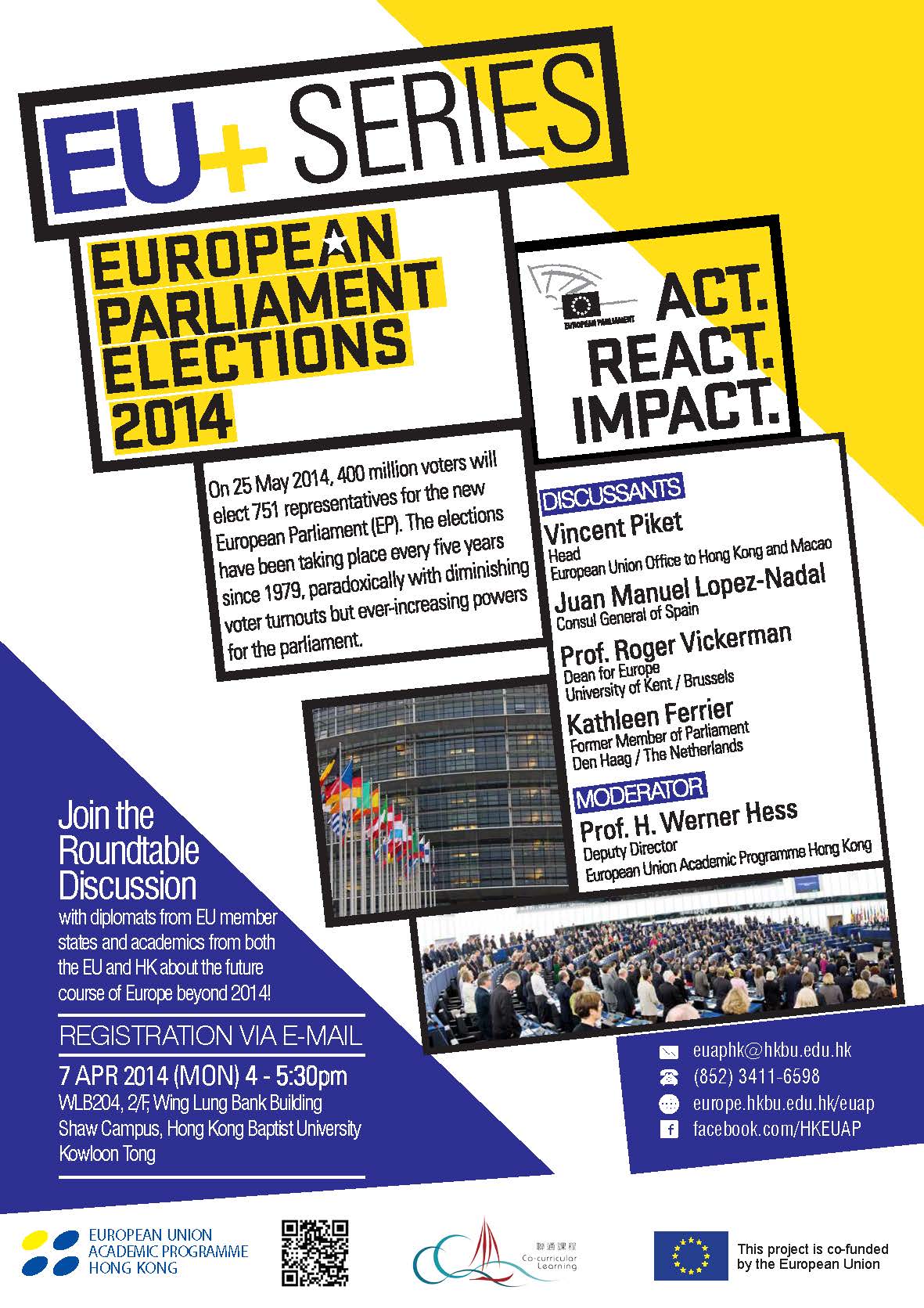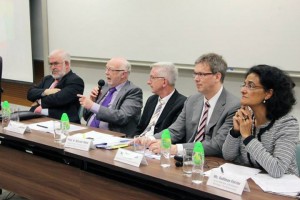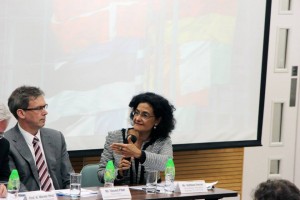Date/Time
Date(s): 07/04/2014
Time: 4:00 pm - 5:30 pm
Location
WLB204, Wing Lung Bank Building, Shaw Campus
Language: English
Admission: Registration needed
EU+ Series “Act. React. Impact – The European Parliament Elections 2014”
Speakers:
-Vincent Piket (Head, Office of the European Union to Hong Kong and Macao)
-Juan Manuel Lopez-Nadal (Consul General of Spain)
-Prof. Roger Vickerman (Dean of Europe, University of Kent / Brussels)
-Kathleen Ferrier (former Member of Parliament, Den Haag / The Netherlands)
Moderator:
-Prof. H. Werner Hess (EUAP Deputy Director)
On 7th April 2014, the EUAP welcomed four honourable guests to discuss concerns over the European Parliament elections 2014. The speakers shared their personal views on the importance of the coming elections, pointing at the reforms of the Lisbon Treaty, which increased the role of the Parliament in the EU’s decision-making and adoption of the budget. Moreover, the seminar became a platform for a vibrant discussion about the rise of euroscepticism and the future of the European Union.
Important challenges that the new European Parliament will have to address include economic stagnation, unemployment, sustainable growth and foreign policy. In order to respond to them, the European Union has to maintain its legitimacy and internal coherence. However, the Eurozone economic crisis and the following austerity measures caused dissatisfaction of citizens with European policies. Worsening economic conditions shifted the focus from the European level to national agendas and allowed radical parties to gain more popularity. The coming European elections are expected to give citizens the opportunity to express their protest and vote for alternative options.
It was stressed that differences in eurosceptic attitudes exist between the southern and northern member states, as well as between the far-right and radical-left parties. According to Mr. Lopez-Nadal, critical voices in the South are not directed at the European Union itself, but at the EU’s policy response to the Eurozone crisis and the politics of the Troika (the European Central Bank, the European Commission and the International Monetary Fund). By contrast, radical parties in the North turn against the EU integration project and put forward the idea of withdrawal from the European Union. Prof. Vickerman argued that in states like the United Kingdom, the main political parties and the media consistently fail to present positive aspects of the European Union.
Although all speakers put emphasis on the need of reforms, they presented various opinions on the future of the European Union after the 2014 elections. From one side, Mr. Piket suggested that there are no options to go back in the EU integration process and Europe has to take the initiative to improve the current economic situation. Mr. Lopez Nadal was clearly in favor of strengthening the influence of the European Parliament to bring about more people-oriented social policies and ameliorate the consequences of the crisis especially for the young and unemployed. On the other hand, Ms. Ferrier concluded that even though eurosceptical parties on the right may become stronger in the European Parliament, the mainstream groups (all of which are in favor of the ‘European project) are likely to form strong coalitions against.
Over 130 guests followed the at-times controversial discussion – and appreciated particularly the frankness of the exchange: “Typically European, and Europe at its best”.
Poster / E-invitation / Summary
Visit our Facebook Album for more pictures:
ENQUIRIES
3411 6598
euaphk@hkbu.edu.hk




